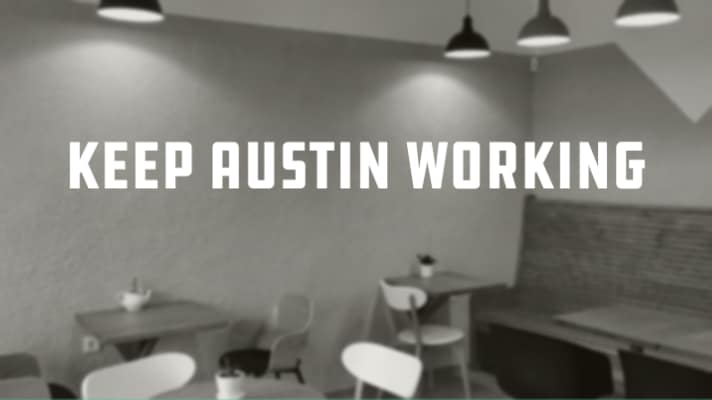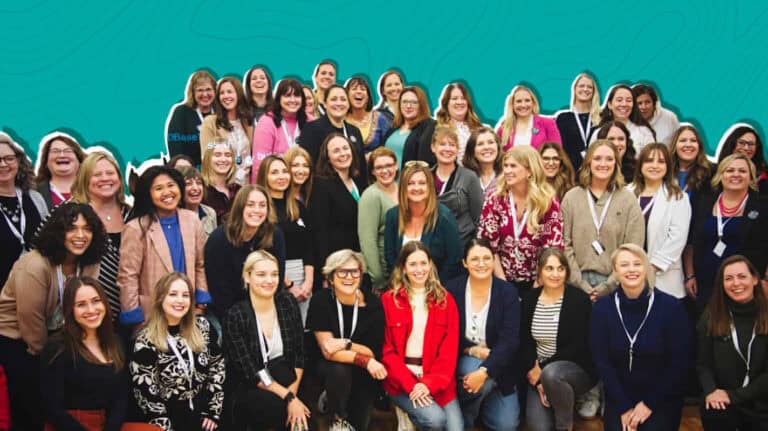During times of uncertainty, it is important to remember that one day we will look back on this as a distant (albeit unpleasant) memory. In areas where fear of contracting COVID-19 is high, massive numbers of people will lose their jobs as hundreds of thousands of commercial businesses will lose their customers and be forced to cease operations.
While medical professionals work tirelessly on the frontlines to combat this outbreak, the impact of social distancing is causing businesses to shut their doors. What are small business owners meant to do in times when their industry is no longer flourishing? Businesses are faced with the difficult decision to either close their doors in the culture of social distancing and self-isolation or to evolve their business offerings to be in alignment with social distancing. Some restaurants have turned to offering curbside pick up in lieu of serving patrons inside. Yet many of our regular haunts including neighborhood coffee shops, have been driven to close their doors or lay off their staff as the businesses aren’t bringing in enough gross to pay their employees.
Now more than ever, it’s crucial that consumers do everything in their power to help their community thrive in attempts to avoid an economic recession. A negative consequence of a COVID-19 outbreak is that citizens will no longer patronize local businesses in order to decrease their likelihood of coming in contact with COVID-19. Unfortunately, businesses like Fleet Coffee in Austin, have had to make the heartbreaking decision to lay off their entire staff as they were unable to evolve their business strategy to one that fits within the confines of the new social distancing guidelines. As has been clearly experienced in China and other countries, the combination of government-mandated restrictions and voluntary protective measures by citizens will devastate economic activity and cause a deep economic recession in the affected areas.
Now more than ever it is important to support our communities even if we cannot inhabit them in the ways that we’ve grown accustomed to. If we can’t make traditional in-person purchases from our favorite local businesses, consumers should adapt to making more online purchases. Shoppers can then be in alignment with social distancing guidelines and with economic health stability. Consumers may not see the impact on their local economy right now but it will have an affect on our communities in the future if we don’t continue to patronize small businesses.
Fred Rogers told a story from his childhood in times of uncertainty and change about when he was a boy and would see scary things on the news: “My mother would say to me, ‘Look for the helpers. You will always find people who are helping.’ To this day, especially in times of disaster, I remember my mother’s words, and I am always comforted by realizing that there are still so many helpers — so many caring people in this world.”
Let’s remain active in our local economy to avoid negative long-term economic impact. Consumers have been told time and time again how important it is to live within our means in a radius that is reasonable. Think global, act local is a phrase often repeated. Here are some other ways that you can help the small businesses in your community stay afloat during this period of uncertainty.
- Purchase a gift card from your favorite restaurant to use at a later date; for a restaurant, cash flow is incredibly important – and putting some dollars into a restaurant’s account in the form of a gift card can be really helpful.
- Shop online or via phone; while some stores already have online shopping, others can help customers order via phone or FaceTime.
- Order takeout or delivery and tip the same amount you would if you were dining in.
- Send food, toiletries or a grocery gift card to your local charity, food bank, homeless shelter or someone in need.
- Consider sending a digital gift card/box of baby food to families that cannot afford to stock up during this pandemic.
- Share extra hand sanitizer and cleaning supplies with local businesses.
- Consider shopping at small mom and pop businesses before big box stores.
- Deliver things to elderly or immune compromised family, friends and neighbors so they don’t have to go out as much.
- Tip well. If you do go out (or even if you’re just ordering takeout), tip a little extra. Most restaurant workers don’t have the option or ability to work from home, and if business begins to halt in the coming weeks, losing their average tips can be devastating.
- Support local events – when they start again. Many local events and festivals have canceled or postponed (and rightly so). But, when they start up again, do what you can to share them with your network and friends. The events industry is being hit especially hard, and recovery is going to take some time. If you purchased tickets for an event that has been canceled, and you’re able to donate the amount of the ticket, instead of getting a refund, please consider doing so.
- Understand that small businesses are making extremely tough decisions whether to stay open or not, so please respect the difficult choices business owners are making.
- Most importantly, stay home if you’re feeling sick! The only way we can return to life as we know it is if we remain responsible for ourselves and others by not going out and potentially contracting the disease.
During periods of crisis and confusion it’s important to stay focused, not panic and keep supporting our communities, even if you can only patronize once a week. Keep Austin Working!




